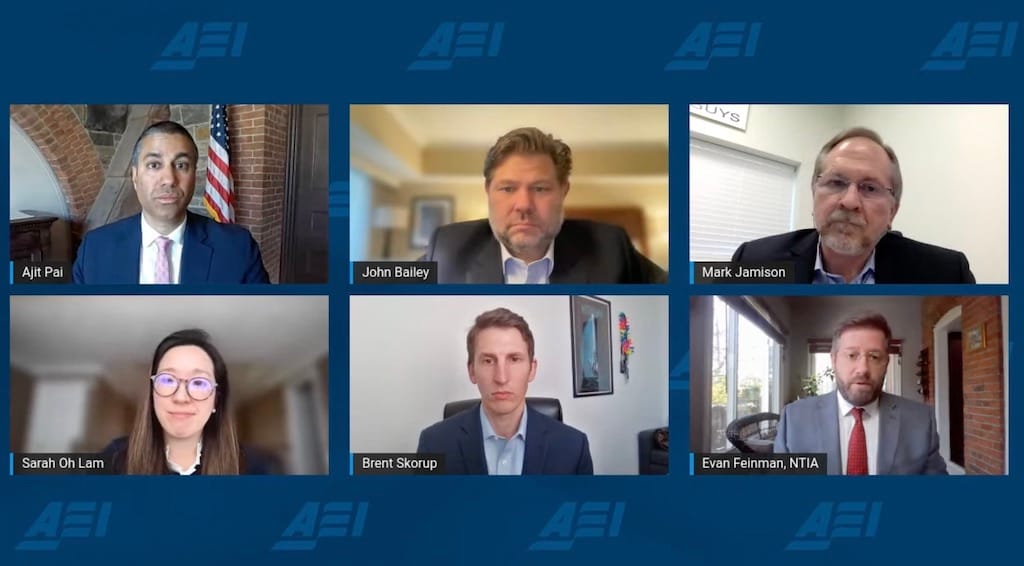High Speed Thresholds Could Pull Infrastructure Funds Away from Poorly Connected Areas
Sarah Oh Lam of the Technology Policy Institute says high speed thresholds could shift funds toward better-connected areas.

WASHINGTON, April 5, 2022 – Sarah Oh Lam, a senior fellow at the Technology Policy Institute, warned against states setting broadband speed targets too high for federal infrastructure money, lest it shifts needed funding away from areas with slow internet.
On a panel hosted Monday by the American Enterprise Institute, Lam said state plans to deliver money through the Infrastructure, Investment and Jobs Act – legislation that includes $65 billion for broadband infrastructure – should look to set the speed targets low enough so adequate amounts of money is distributed to areas with slower speeds.
She was concerned that if the states set the download and upload speeds too high in an effort to “future proof” their networks, the funds would be divided between better and slower connected areas, rather than more of the pie being distributed to the latter areas.
Lawmakers and agency officials have made it clear that federal funding should first go to those who have speeds under 25 Megabits per second download and 3 Mbps upload, which is the current federal standard and is a speed under which the infrastructure bill considers unserved. Those under 100 Mbps download and 20 Mbps upload are considered “underserved.”
“Let’s say that a state sets the threshold very high, like a 100/100 [instead of 25/3]. Well, that actually affects where subsidies can go and might have unintended consequences. Subsidies will go to areas that already have 90/30 over places that have 30/10,” said Lam.
Another topic of the panel was state broadband offices, with almost every member of the panel – and Senator Deb Fischer, R-NE, emphasizing that each state needs to have a broadband office or agency that will be dedicated to handling and overseeing the funds their state receives from the IIJA.
Lam also said states need to be reporting back data concerning their broadband building and successes, or failures, in a way that is comparable to other states to measure and compare competition and outcomes.








